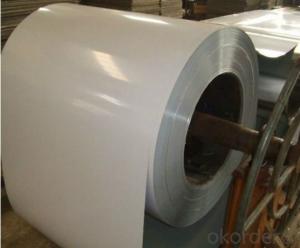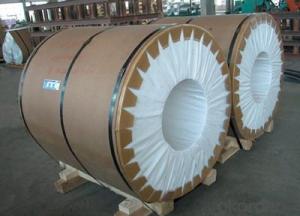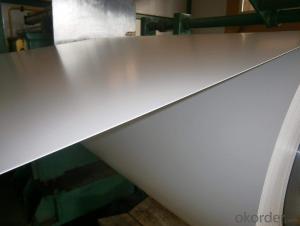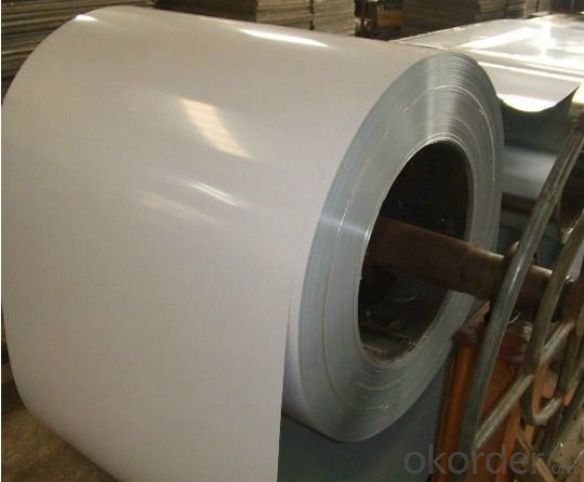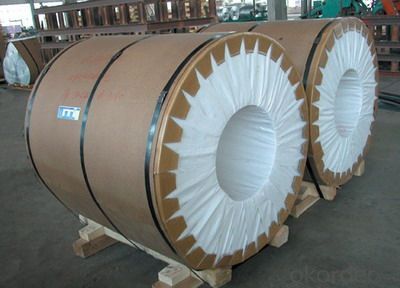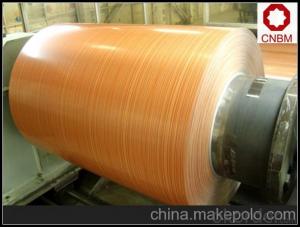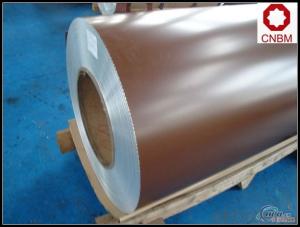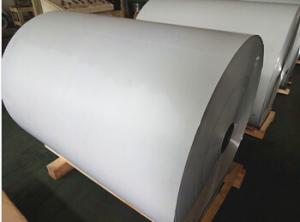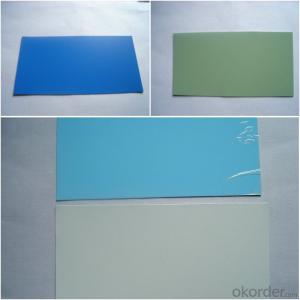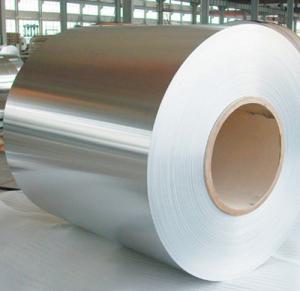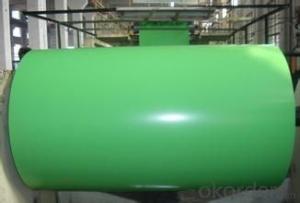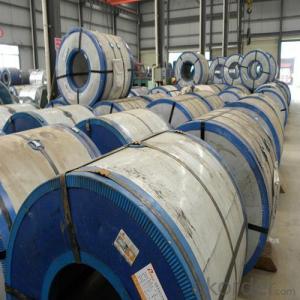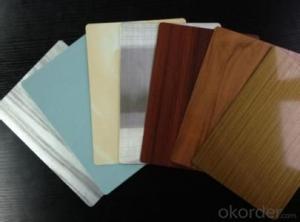Lowes Aluminum Coil - First Class Colorful Coated Aluminium Coil
- Loading Port:
- Shanghai
- Payment Terms:
- TT OR LC
- Min Order Qty:
- 5 m.t.
- Supply Capability:
- 2000 m.t./month
OKorder Service Pledge
OKorder Financial Service
You Might Also Like
Specification
Structure of Aluminium First Class Coil with Colorful Coated Description:
Coated aluminum coil/sheet are of a wide range of colors, which gives wonderful appearance no matter in residential and commercial constructions of great exhibition centers.
The coated aluminum coil/sheet have been widely used in the fields of construction and decoration( garage doors, ceiling etc.), electronic appliances, lighting decoration, air-condition air pipes, sandwich panels and drainages etc.
Main Features of the Aluminium First Class Coil with Colorful Coated:
1) High flexibility
2) Impact resistance
3) Excellent weather-proof durability
4) Anti-ultraviolet
5) High erosion resist
Images of the Aluminium First Class Coil with Colorful Coated:
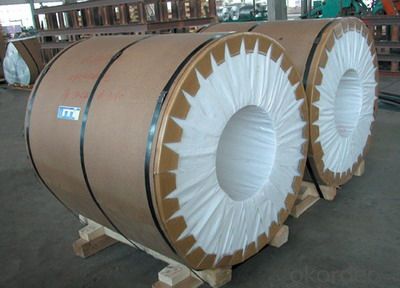
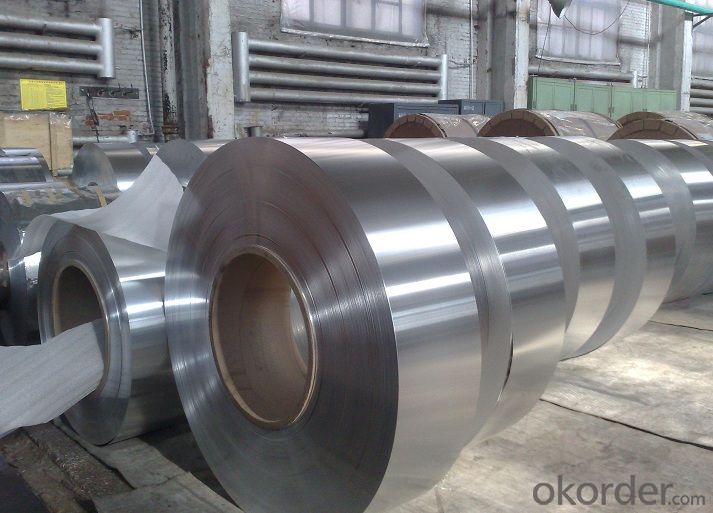
Aluminium First Class Coil with Colorful Coated Specification:
Alloy | A1100,A3003,A1050,A8011 etc |
Temper | H16,H18,H24 |
Thickness | From 0.024mm to 1.2mm |
Width | Standard width:1240mm |
Special width:1300mm,1520mm,1570mm,1595mm | |
Diameter | Standard dia:1200mm |
Interior dia:150mm,405mm,505mm | |
Weight | 2.5 T/coil,3.0 T/coil |
Coating | PE, PVDF, AC |
Surface | Embossed, mill finish, coated |
Color | AS to code RAL |
Gloss | 10-90%(EN ISO-2813:1994) |
Coating Thickness | PE: more than 18 micron |
PVDF: more than 25 micron | |
Coating Hardness (pencil resistance) | More than 2h |
Coating adhesion | 5J(EN ISO-2409:1994) |
Impact Resistance | No peeling or cracking(50 kg/cm,ASTMD-2794:1993) |
Flexibility (T-bend) | 2T |
MEK resistance | More than 100 |
FAQ:
a.What is monthly capacity
---CNBM is one stated own company and our monthly capacity is about 2000tons.
b. Now which countries do you export your goods?
---Now we export to South East Asia,Africa, North America,South America ect.
- Q: What is the maximum coil weight for aluminum coils?
- The maximum coil weight for aluminum coils can vary depending on the specific grade and thickness of the aluminum being used. However, in general, aluminum coils can typically range from a few hundred pounds to several thousand pounds in weight.
- Q: Can aluminum coils be used in the production of electronic devices?
- Aluminum coils have the capability to be utilized in the manufacturing of electronic devices. Within diverse industries, including electronics, aluminum is a versatile and extensively employed material. It possesses exceptional electrical and thermal conductivity, rendering it appropriate for implementation in electronic components such as coils and inductors. In the realm of electronic devices necessitating the transmission of electrical energy, aluminum coils are frequently employed in power transformers, motors, generators, and other tools. Moreover, aluminum is an appealing option for manufacturers due to its lightweight nature, durability, and cost-effectiveness. Nevertheless, it is crucial to acknowledge that the appropriateness of aluminum coils will ultimately depend on the specific application and requirements of the electronic device.
- Q: Can aluminum coils be used in the production of aluminum composite walls?
- Yes, aluminum coils can be used in the production of aluminum composite walls. Aluminum composite walls are typically made by sandwiching a layer of polyethylene between two aluminum sheets. The aluminum coils are first processed to form flat aluminum sheets, which are then used as the outer layers of the composite wall. The coils are unrolled and flattened during the manufacturing process to create the desired width and thickness of the aluminum sheets. These aluminum sheets offer excellent strength, durability, and weather resistance, making them ideal for use in aluminum composite walls. Additionally, the use of aluminum coils allows for efficient and cost-effective production, as they can be easily processed and formed into the required dimensions.
- Q: How are aluminum coils protected from damage during transportation?
- To protect aluminum coils during transportation, a combination of packaging materials and handling precautions is utilized. Initially, the coils are wrapped with materials like stretch film or plastic wrap to prevent scratches and abrasions, thus maintaining the coil's surface integrity and preventing potential damage. Moreover, the coils are typically placed on sturdy wooden pallets or skids, providing a stable base for transportation. This reduces movement and shifting during transit, avoiding dents or deformations in the coils. Additionally, steel or plastic strapping is used to secure the coils, ensuring their stability and preventing unintended unwrapping or unrolling. The straps are tightly fastened around the coils and pallets, creating a secure bundle capable of withstanding jostling and vibrations during transportation. During loading and unloading, specialized equipment like forklifts or cranes is employed to handle the coils carefully, reducing the risk of dropping or mishandling that could result in significant damage. In summary, a combination of protective packaging materials, secure pallets, and careful handling procedures is employed to protect aluminum coils during transportation. These measures aim to preserve the coils' quality and structural integrity, ensuring they reach their destination in optimal condition.
- Q: What kind of sensor is appropriate for aluminum coil thickness measurement?
- You can use laser sensor.
- Q: What are the different surface treatment options available for aluminum coils?
- There are several surface treatment options available for aluminum coils, including anodizing, painting, powder coating, and laminating. Anodizing involves creating a protective oxide layer on the surface of the aluminum, providing increased durability and corrosion resistance. Painting allows for a wide range of colors and finishes, while powder coating offers a more durable and environmentally friendly option. Laminating involves applying a protective film to the surface of the coil, providing added protection and enhancing its appearance.
- Q: What are the common fabrication techniques for aluminum coils?
- Some common fabrication techniques for aluminum coils include rolling, annealing, slitting, and coating. Rolling is the primary fabrication technique used to produce aluminum coils. It involves passing a continuous strip of aluminum through a series of rollers to gradually reduce its thickness and increase its length. The process can be done hot or cold, depending on the desired properties of the coil. Annealing is a heat treatment process that is often applied to aluminum coils to improve their mechanical properties. It involves heating the coil to a specific temperature and then cooling it slowly to relieve internal stresses and increase its ductility. This makes the coil easier to work with during subsequent fabrication processes. Slitting is a technique used to cut wide aluminum coils into narrower strips. It involves passing the coil through sharp rotating knives that make precise cuts along the length of the coil. Slitting allows for customization and the production of coils in different widths, which can be used for various applications. Coating is another common fabrication technique for aluminum coils. It involves applying a protective or decorative coating onto the surface of the coil to enhance its appearance and improve its performance. Common types of coatings include paint, anodizing, and powder coating, which provide corrosion resistance, durability, and aesthetic appeal. Overall, these fabrication techniques play a crucial role in converting aluminum into coils that meet specific requirements for various industries, such as construction, automotive, and aerospace.
- Q: Can aluminum coils be used in food processing equipment?
- Indeed, food processing equipment can utilize aluminum coils. The numerous advantageous properties of aluminum make it a favored option for food-related applications. Its lightweight nature, resistance to corrosion, and exceptional thermal conductivity render aluminum coils appropriate for deployment in refrigerators, freezers, ovens, and heat exchangers within the realm of food processing equipment. Furthermore, aluminum is non-toxic and does not interact with food, thereby establishing it as a secure material for direct interaction with consumable items. Nevertheless, it remains crucial to verify that the aluminum employed in food processing equipment adheres to the requisite food safety standards and regulations, thereby averting any potential contamination.
- Q: Can aluminum coils be formed into different shapes?
- Yes, aluminum coils can be formed into different shapes through various processes such as bending, rolling, or stamping.
- Q: What are the common quality control measures for aluminum coil manufacturing?
- Some common quality control measures for aluminum coil manufacturing include visual inspections to check for any defects or imperfections in the coils, dimensional measurements to ensure they meet the required specifications, chemical analysis to verify the composition and purity of the aluminum, mechanical testing to assess the strength and durability of the coils, and surface finish evaluations to ensure a smooth and uniform appearance. Additionally, manufacturers may implement statistical process control techniques to monitor and control the production process to consistently produce high-quality aluminum coils.
Send your message to us
Lowes Aluminum Coil - First Class Colorful Coated Aluminium Coil
- Loading Port:
- Shanghai
- Payment Terms:
- TT OR LC
- Min Order Qty:
- 5 m.t.
- Supply Capability:
- 2000 m.t./month
OKorder Service Pledge
OKorder Financial Service
Similar products
Hot products
Hot Searches
Related keywords
